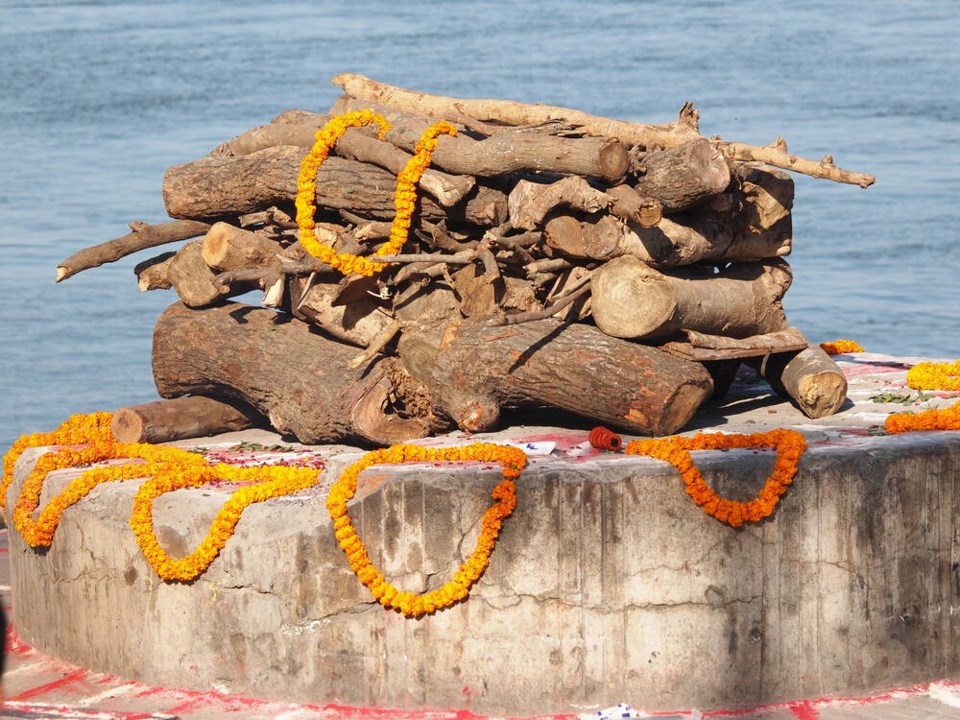For many like me, living far away (a 24-hour plane ride) from home, there’s a worry that lingers in the depths of our minds: that anxious anticipation of “the call.”
I’m not talking about the one long-overdue call from dear friends; nor the occasional group calls with family.
I’m not even talking about those oddly timed calls in the wee hours of the morning when the caller has forgotten the time-zone difference.
I’m talking about that call that arrives in the dead of night or at the break of dawn or just at any given hour. The call that gives an inexplicable feeling of dread that something bad has happened.
It's part of the price of living far away from loved ones — each waking moment becomes an endless wait for that call. And the worst part? You are not there. You cannot be there.
May 18, 2020
It’s one of those days that remains fresh in my memory, like it happened yesterday.
My daily ritual involves reaching for my phone and calling my parents on WhatsApp the first thing.
But that morning was different. The year had gotten off to a rough start for me, even pre-COVID.
My mental health was at rock bottom, and the onslaught of the pandemic only intensified my isolation. I was entirely alone.
Social media distressed me more, prompting me to disconnect from it. I kept only one channel open for my parents.
After many sleepless nights, on May 17, 2020, exhaustion finally caught up to me and I slept.
So when I awoke from a deep slumber the next morning to 19 missed calls from my mom, my dad and even my uncle, I knew deep down that the worst had happened.
Oblivious to my emotional breakdown here, my family had desperately tried to reach me because my grandmother, whom I’d respected and loved, had passed early in the morning (their time, which was night here). And I wasn’t there.
I’d missed a crucial call. I was the last to learn of this news. I wasn’t there to see her one final time or witness her last rites — not even remotely, through video.
I was not there to console and hold my mother while she suffered the loss of both her parents within two years. Not then, not for two more years.
And here I was in Canada, grieving alone with no one to hold me while I cried endlessly.
Coping with loss from a distance
The burden of guilt overwhelmed me (and continues to do so after three years) — how could I have missed this? Why was I not there by my mother’s side?
All while I was myself trying to cope with the loss from a distance.
It was an intricate dance my mother and I engaged in: I didn’t want my mother to suffer more from losing her mother, so I pretended to be strong and coping well, while my mom did the same because I was living overseas by myself.
Funerals last almost two weeks in our culture. The body is cremated on the first day, but the entire family gathers for 13 days to mourn the loss and help uplift the spirits to another realm — heaven.
Despite wanting to return home during this time, expensive airfares, COVID restrictions and potential visa complications kept me back in Canada, desperately seeking shoulders to cry on and arms to hold me. But there were none.
And that’s the difference of grieving from a distance — you are forced to carry the grief, the guilt, the desperation to be near your loved ones, all alone.
Returning to an “empty space”
Time heals, but I think a part of grief always stays with you.
Nearly two years after my grandmother passed, the pandemic restrictions started easing and international travel resumed, so I planned a surprise visit back home and booked a one-way flight. My first time returning home in three years.
And I remember vividly: sometime late January in 2022, while my friends and I were watching a Hindi movie, Swades, I helplessly broke down.
A scene in the movie left me thinking that the home I left would not be the one I’d be returning to. I’d be going back to a void that was once occupied by my grandmother.
In that moment, I was two years old, with my grandmother rocking me to sleep. I was eight years old, being pampered. I was 18 years old, being pushed to pursue my dreams.
And I was 22 years old, swapping my old life for a new one in an alien land — not knowing I would never see her again.
The last time I was home, I had deeply felt the presence of my grandmother. This time, I knew my heart would long for an embrace that I wouldn’t receive.
I loved both my grandparents equally, but my grandmother’s death had a profound impact on me because I was not physically there for her final moments.
And I think that’s why a part of me would always remain 22 — my age when I last shared my life with her.
You learn a lot when you move pack up your life into two suitcases and move far away from the love you’ve always known. You learn how to adapt to new cultures, adopt new languages and adjust to new climates. But I'm not sure it's possible to fully deal with the loss of a loved one from afar.
As an immigrant, I think there will always be that internal struggle. Should I stay to build a new life for myself, or return home to faraway loved ones, because I don't know whether I will be able to embrace them again?



